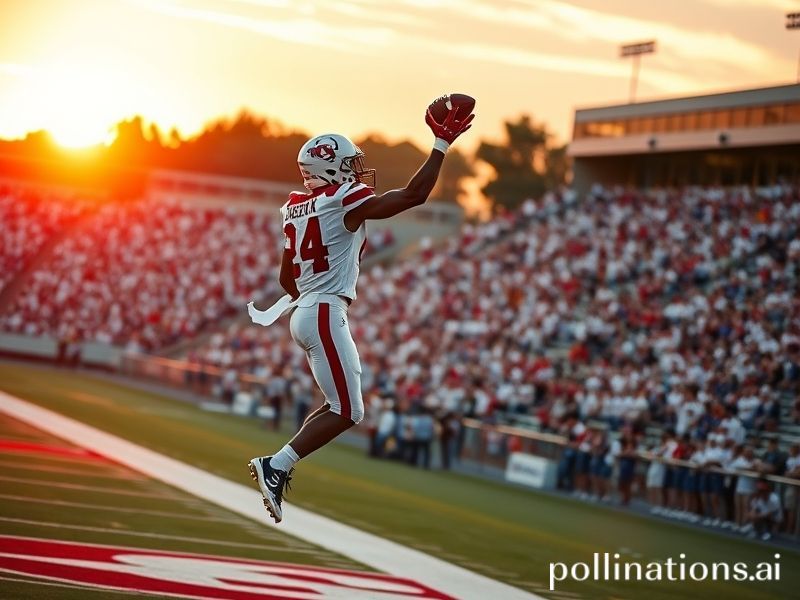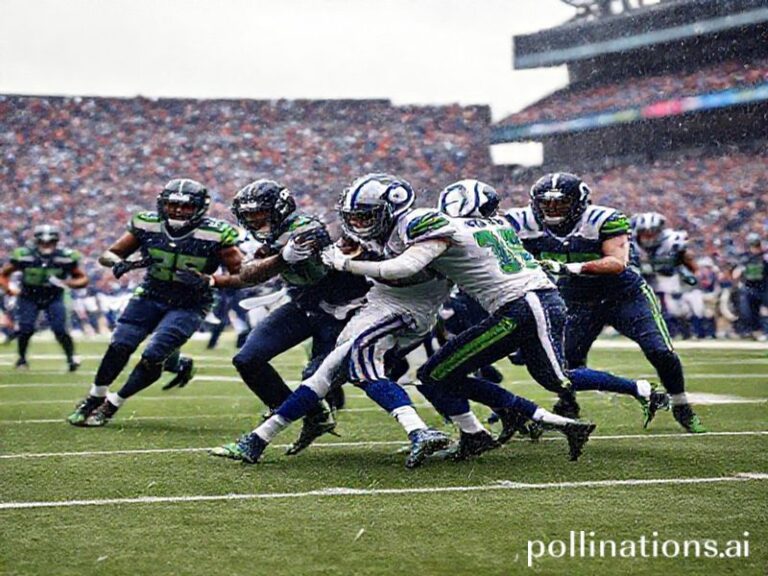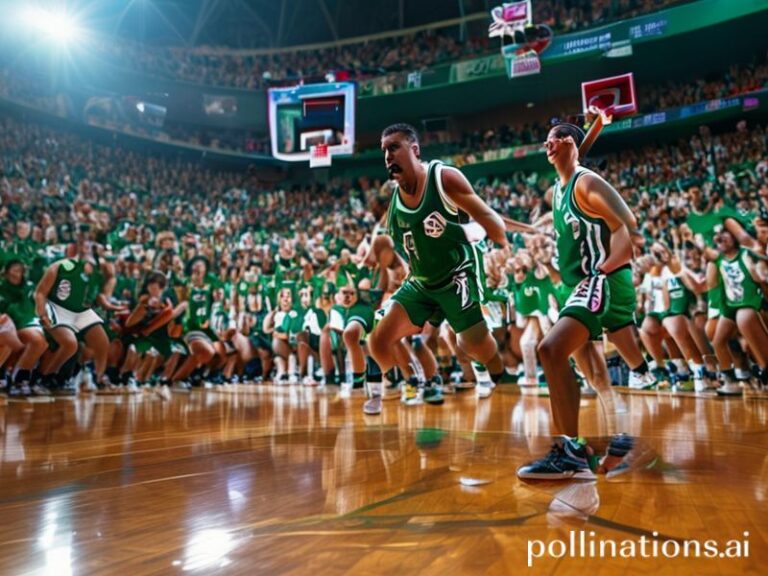South Alabama Football: How a Small-Town Team Became the World’s Most Ironic Geopolitical Barometer
South Alabama Football: When American Pageantry Meets the Global Panic Room
By “Jet-Lagged” Javier, filing from somewhere between Doha Duty-Free and a Mobile, Alabama Waffle House
The Jaguars of the University of South Alabama do not, at first glance, look like geopolitical actors. Their stadium seats barely 25,000—roughly the capacity of a mediocre European airport lounge on a summer strike day. Yet last Saturday, as South Alabama dismantled an overmatched Sun Belt rival under a pink gulf-coast sunset, seven separate international intelligence agencies were monitoring the broadcast. Not for the triple-option misdirection, mind you, but for the crowd’s reaction time to the emergency-pager test that accidentally hijacked the stadium PA. The ensuing 18-second wave of polite confusion was, according to one Brussels think-tank analyst, “a perfect micro-model of how Western democracies will respond to the next supply-chain cyberattack—slow clap, then nachos.”
Welcome to the new world order, where even a mid-tier American college football program finds itself an unwitting data point in the great spreadsheet of late-stage capitalism. South Alabama’s season, now 6-2 and flirting with the kind of obscure December bowl game sponsored by an app you’ve already deleted, matters far beyond Mobile Bay. The Jaguars’ incremental rise coincides with three global trends: the weaponization of nostalgia, the monetization of tribal identity, and the desperate search for something—anything—that still feels unscripted in an age when even your refrigerator sends push notifications.
Consider the jerseys. This year South Alabama debuted alternate helmets whose shade of “Gulf Aqua” was reverse-engineered from a Pantone swatch of post-BP-oil-spill seawater. Nike insists the colorway is “a celebration of coastal resilience.” Everyone else recognizes it as late-capitalist repentance wrapped in moisture-wicking polyester. The same week, Bangladeshi factory workers stitching those helmets’ decals went on strike for wages that would still not cover a single concession-stand beer inside Hancock Whitney Stadium. Somewhere, a supply-chain consultant took notes, labeled the file “Brand‐Induced Irony,” and billed 2.4 hours.
Overseas audiences—yes, they exist—watch Sun Belt football on a sketchy Romanian stream that overlays Las Vegas odds in Cyrillic. To them, South Alabama versus Coastal Carolina is less a sporting event and more a low-stakes morality play about a country that schedules military flyovers during third-and-long while its bridges back home rank structurally as “catastrophic haiku.” The Brits, still bitter their own universities traded tackling for tuition hikes, view the spectacle with anthropological disdain, like Jane Goodall discovering the chimps have learned to tailgate.
But the real international takeaway is the merchandise calculus. Every South Alabama win nudges alibaba.com vendors to fire up the loom for another pallet of “Jaguars—2025 National Champs” T-shirts, pre-ordered just in case the simulation glitches and a 5’9” walk-on quarterback actually topples Georgia. Those shirts will never see Mobile; instead they’ll be dumped in an Angolan street market beside 2014 “Brazil World Cup Winners” gear and 2022 “Kanye for President” hoodies. Somewhere an Ivorian kid will wear a South Alabama shirt without knowing it’s a university, assuming “Jaguars” is either a militia or an energy drink. Soft power, baby.
Of course, the players remain blessedly oblivious. Ask the sophomore linebacker from Pensacola about the global resonance of his third-quarter sack and he’ll reply, earnestly, “Sir, I just like hitting people legally.” That purity is precisely what the rest of the planet craves: a corner of human endeavor not yet gamified by hedge funds or NFTs. For 60 minutes, the world’s most over-leveraged empire stages a ritual where unpaid labor generates millions in TV revenue, yet the crowd still believes the outcome is dictated by heart rather than actuarial tables. It’s charming, in the same way a flaming cruise ship retains a certain aesthetic grandeur.
As the clock hit zero last Saturday, fireworks painted the sky Gulf Aqua, and the PA blared a country song whose lyrics equate truck ownership with eternal salvation. Fans filed out past the bronze statue of a jaguar that looks suspiciously like a house cat on steroids. Above them, a satellite—one of Elon’s brighter contributions to light pollution—blinked twice, uploading crowd-density metrics to a server farm in Reykjavik. Someday a data scientist will discover that the exact decibel level of a South Alabama fourth-quarter roar correlates with copper futures in Chile. The grant will be titled “Emotional Contagion as Leading Economic Indicator,” and nobody will laugh because the joke will finally be over.
Conclusion: South Alabama football isn’t world-shaking, but it is world-mirroring—a pastel microcosm where geopolitics, labor exploitation, ecological guilt, and primal bloodlust perform their weekly dance under mosquito zappers. If the Jaguars somehow clinch the Sun Belt and snag a December 23rd bowl berth in the Bahamas, remember to watch. Not for the touchdowns, but for the overhead shot of cruise ships idling offshore, burning bunker fuel so passengers can stream the game on their phones and pretend the ocean isn’t on fire. We are all, it turns out, just trying to run out the clock.







